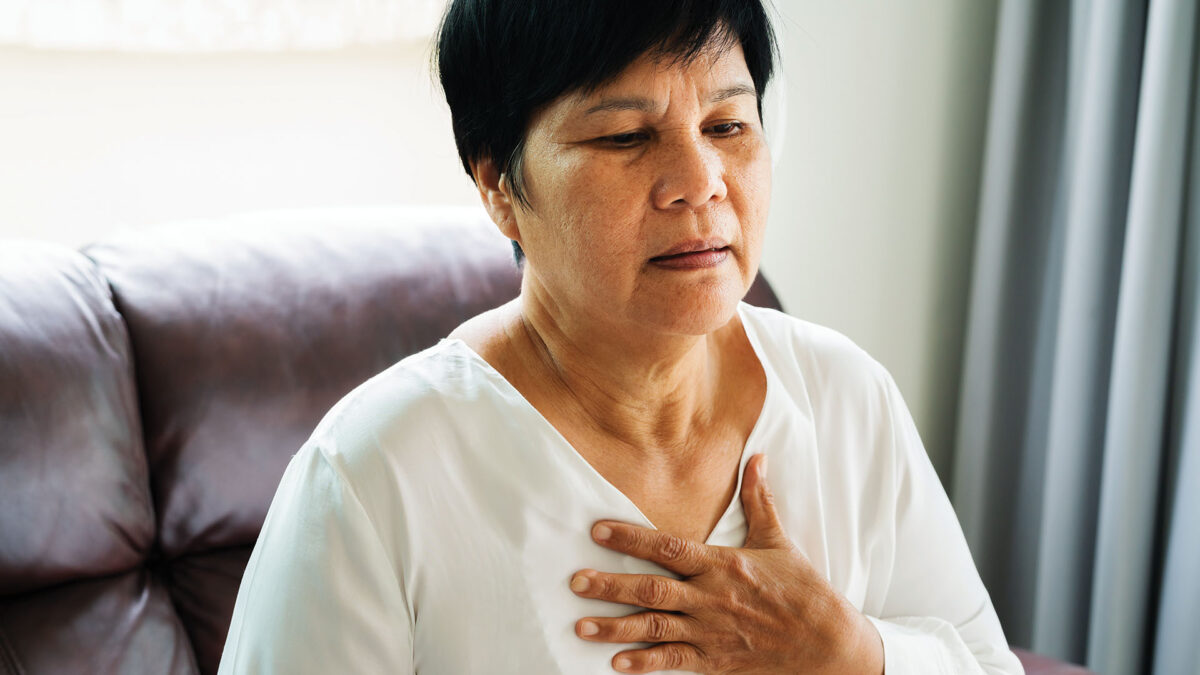Are they worth worrying about?

I’m a healthy, 55-year-old female, and I exercise regularly. I’m sometimes aware of my heart pounding in my chest. Should I worry about a heart rhythm problem?
Regular exercise is related to improved longevity, and better physical, mental, and spiritual health and well-being. It helps prevent cardiac disease. If your symptoms are new, however, please consult your health-care provider.
Generally, we’re not aware of our heartbeat. The heart, fearfully an wonderfully made, continues to beat faithfully throughout our lives. This may be one of the reasons we take heart health for granted—the heart is an uncomplaining servant. There are times we become aware of our heartbeat. “Palpitations” is the term used for when that happens.
One may experience palpitations during strenuous exercise, and for a short time thereafter during recovery. Other times when it may be normal to experience one’s heart pounding in the chest could be during episodes of anger, sudden fright, anxiety, and tension. The release of hormones such as epinephrine/norepinephrine (adrenaline/ noradrenaline) and cortisol increases the heart rate and the blood pressure. Although we would hope these are not the “normal” states for our readers (stress, tension, or anger), one could regard the awareness of one’s heartbeat at such times as within normal limits. Prolonged stress and anxiety, however, may contribute to cardiovascular disease progression, including hypertension. It’s important to recognize the cause or causes of the stress and anxiety and manage these appropriately, which might include seeking professional help and counseling where needed. One may also become aware of one’s heartbeat when resting or lying in relaxed settings; this may be related to sometimes actually “hearing” the regular beat of the heart, or sensing the pulse by a mild compression of one limb by another when lying down.
Further information is helpful in evaluating palpitations. During the episode, is the speed of the heartbeat rapid or slow? Is it regular or irregular? Is it momentary or sustained? These characteristics help one evaluate potential rhythm disturbances (arrhythmias) of various kinds. Is there associated chest pain or shortness of breath? Additional worrisome symptoms would be the occurrence of any associated dizziness, lightheadedness, sweating or feeling clammy, and/or fainting during the palpitations. Arrhythmias may lead to a sudden loss of consciousness or a fainting spell, which can be very dangerous, especially if these occur while driving a vehicle or bathing.
Isolated and nonsymptomatic palpitations with exercise or stressful circumstances occur commonly. Cardiac arrhythmias may be caused by hereditary electrical conduction abnormalities of the heart, congenital heart abnormalities, heart valve disorders, coronary artery disease, hypertension, medications, alcohol, and an overactive thyroid gland (thyrotoxicosis). Arrhythmias may cause sudden death. These are compelling reasons for you to see your doctor to make sure the palpitations are benign.
A healthy lifestyle may help prevent acquired heart conditions, which give rise to arrhythmias. Make healthful lifestyle choices, and “do not be anxious about anything. . . . And the peace of God . . . will guard your hearts and minds in Christ Jesus” (Phil. 4:6, 7).








